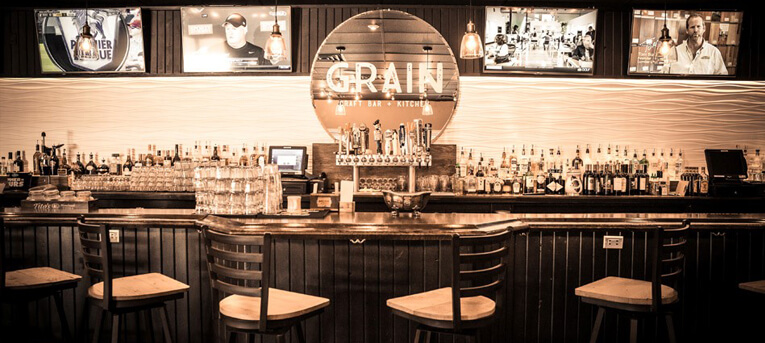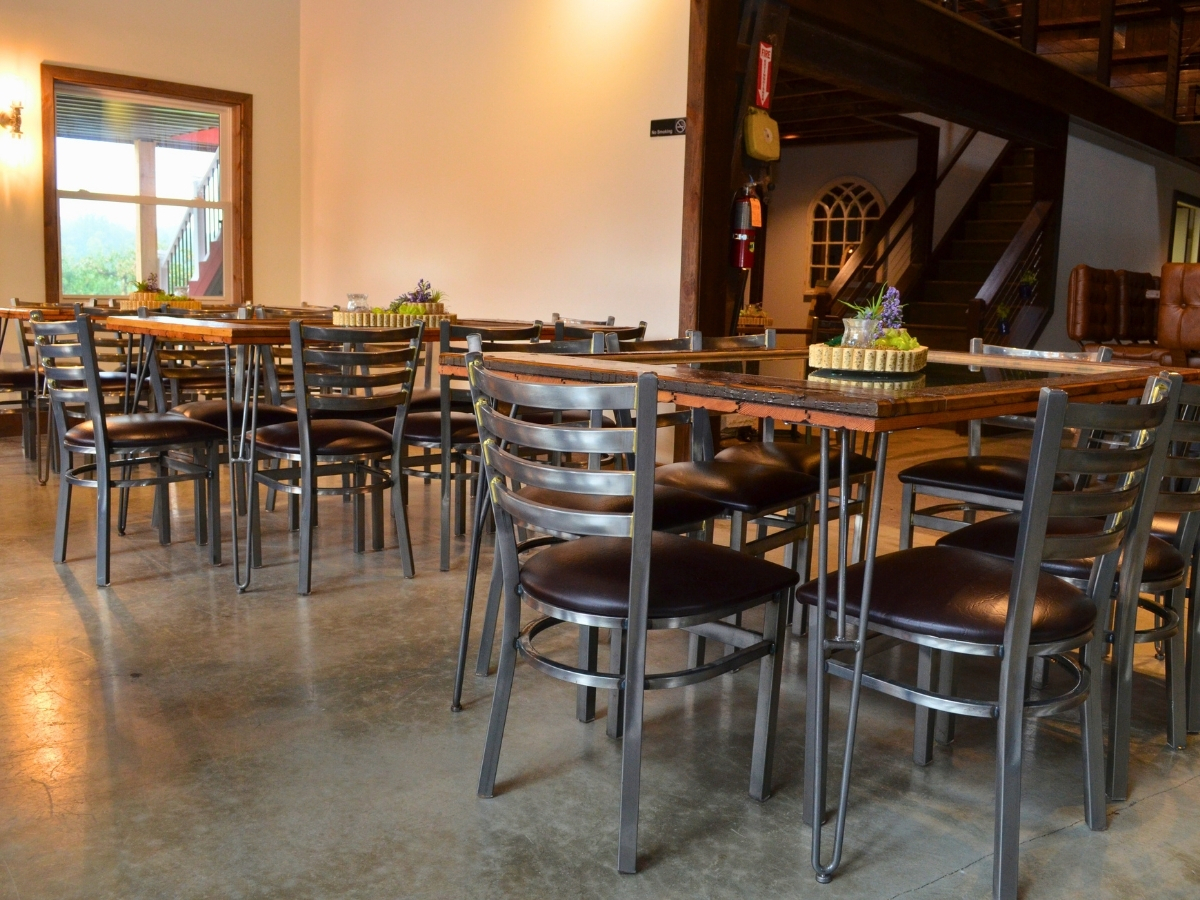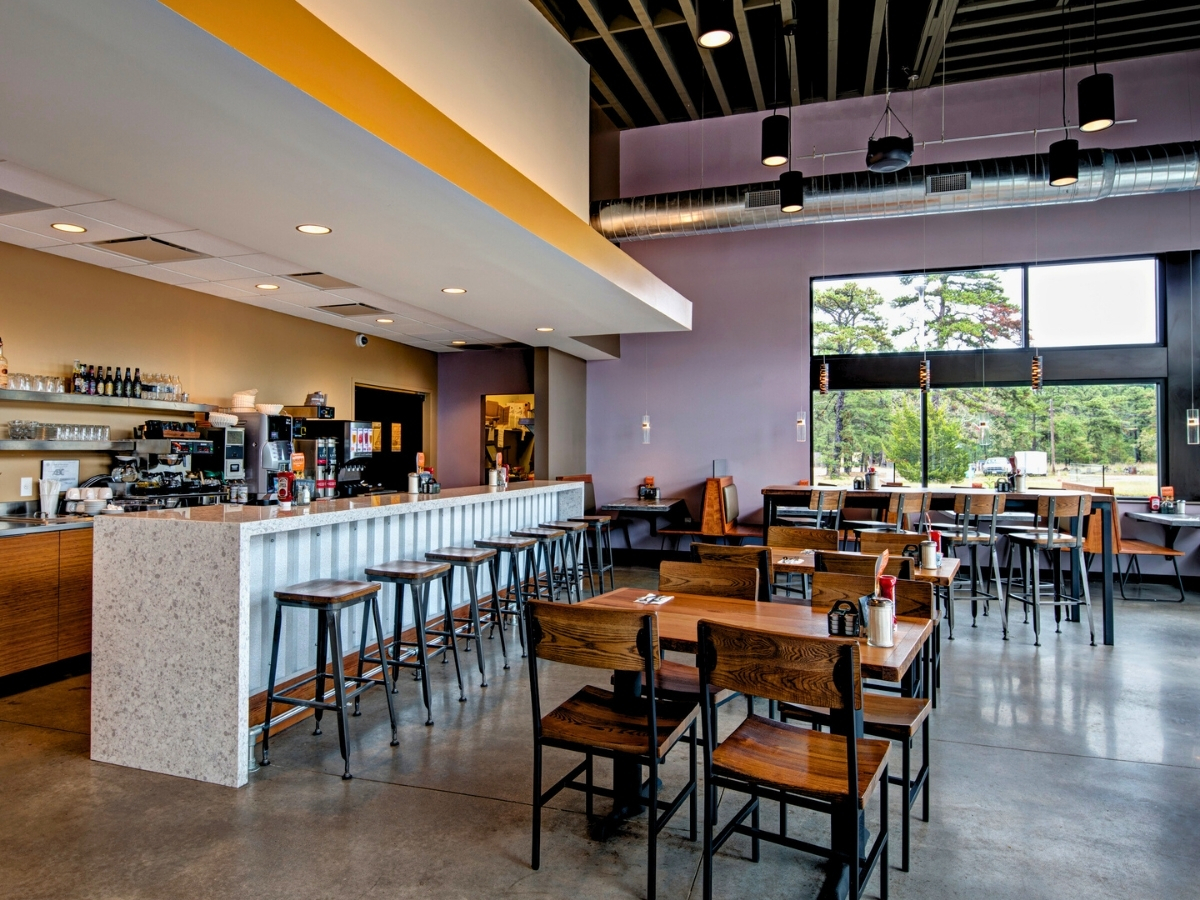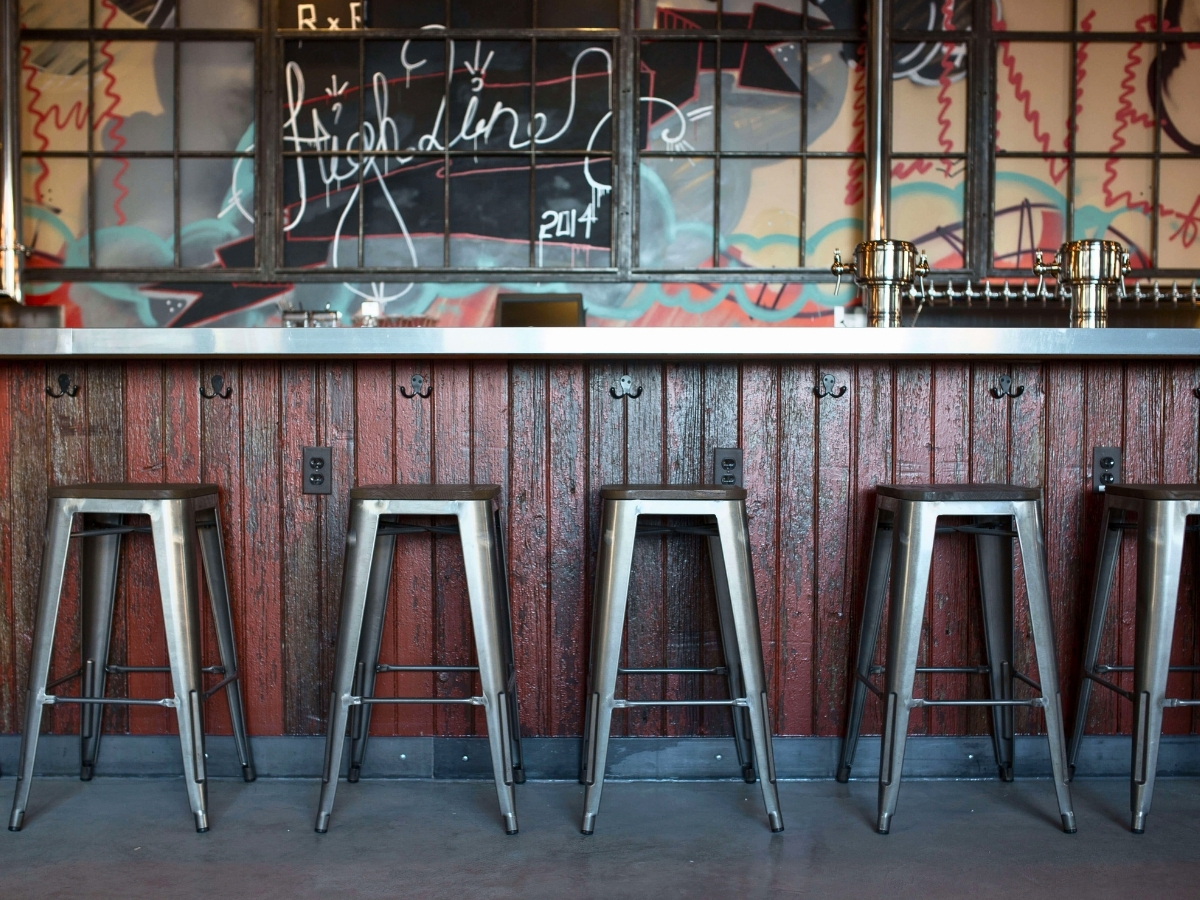So you’re thinking of starting a brewery. It’ll be simple right? You love beer and you’ve been brewing it at home for a while now, so what could be that different? It turns out quite a bit. We’ve gathered information from interviews and blogs by amateurs turned professional brewers and the things they wish they knew when starting out on their journey.
The Legal Side
One of the most important parts of brewing is realizing that it is a heavily regulated industry and that a brewer needs to be very familiar with the laws regarding brewing and the sale of alcohol. There are national laws as well as local laws that you need to familiarize yourself with before taking the plunge into selling beer. You’ll need to apply for a federal brewing permit with the Alcohol and Tobacco Tax and Trade Bureau. The application does not cost anything but can take an average of four months to process, so it is best to get started quickly, according to Derek Allen who advises several breweries for his legal firm
Ward and Smith, P.A.
Local licensing is also required if you want to serve beer at your brewery; this includes getting a liquor license, which can take about 45 to 60 days if licenses are available. Some states/municipalities limit the number of liquor licenses based on the population of that area. If licenses are not available you could be waiting for an indeterminate amount of time until one becomes available. Considering selling other goods such as clothing or supplies? You’ll need to file for a retailer license as well.
It is also good to consider the corporate structure of your business. You can determine your corporate structure by taking a look at your financial situation and the number of people founding the business. We recommend speaking with your accountant and determining what structure would work best for your business. You’ll also need an operating agreement. An operating agreement says how the business is going to be run, who will control it, how to resolve disputes, and how new investors will be brought in. That way when the time comes you’ll know exactly how to handle any situation.
You’ll also want to consider the types of insurance needed. “Any manufacturer of beer should have property, casualty, and liability insurance.” Says Allen. Most banks won’t lend to you unless you have all three.
To get your federal brewer’s permit, you’ll also be required to get a brewer’s bond, which is a document ensuring you pay your federal taxes. Again it is best to apply for this as early as possible, so that you can get your business started.
Is your head spinning? Don’t worry there are plenty of entities to help you through this process. Organizations such as the Brewers Association have online resources to help those new to the industry get up and running.
Expenses
Starting a brewery is expensive. Michael Kane of Kane Brewing Company told Cnbc.com “Everything is three times as expensive as you think,” Brewing is a capital intensive business, meaning that excess earnings often need to be poured back into the business. “You’re never really done investing in this business,” said Kane. Start with the expense of applying for different licenses and permits. Some of these can be a $100 and some can be in the $1000’s. Then comes the equipment. One barrel which holds 31 gallons, which is about 320 12-ounce beers, can cost around $100,000. A lot of brewers recommend getting more than one barrel. And that’s just the start.
Essential equipment also includes:
- Kettles
- Kegs
- Boilers
- Bottling and canning lines
- Conveyors
- Cooling systems
- Storage tanks
- Fermentation tanks
- Filters and beer-labeling machines
- Piping and tubing
- Refrigeration equipment
- Cleaning equipment
- Waste treatment systems
- Tap handles
Keep in mind the government won’t approve your federal brewing permit until all of your equipment is installed and fully operational so these are expenses that will occur almost as soon as you decide to start your own brewery. Then, once you are up and running, different expenses like paying employees and providing them with benefits begin to become a factor.
If you intend to open up an eat-in area in your brewery, that comes with an entirely new set of costs such as
commercial furniture and additional equipment, as well as staff to man that part of the business.
A cost that is often overlooked when creating a budget is flooring. Composite flooring that will withstand impact shock, temperature shock, and acid from the beer can cost upward of $10 per square foot. A new brewery owner is also bound to have a few surprise expenses. So it is good to leave at least a 50% cushion for unexpected costs.
Clean Freak
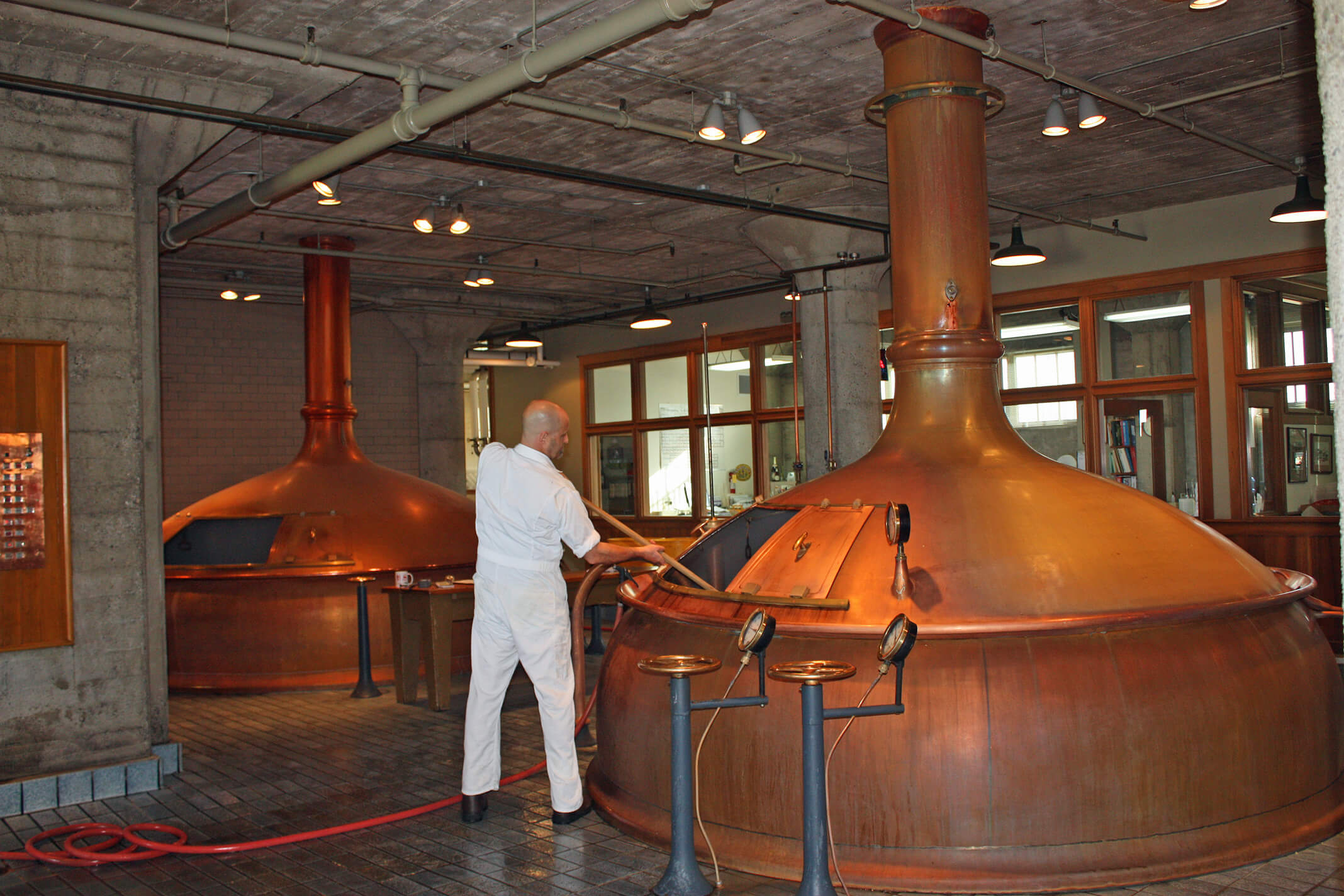 According to Collin McDonell of HenHouse Brewing, brewing is 90% cleaning and 10% paperwork. Beer requires a lot of sanitary vessels for the fermentation process, which leaves behind a trail of dirty containers, tools, and instruments. Cleaning is an inevitable part of everyday brewery life.
According to Collin McDonell of HenHouse Brewing, brewing is 90% cleaning and 10% paperwork. Beer requires a lot of sanitary vessels for the fermentation process, which leaves behind a trail of dirty containers, tools, and instruments. Cleaning is an inevitable part of everyday brewery life.
Not cleaning your equipment can lead to a multitude of growths that can affect your beer production as well as your patrons willingness to come back. Small amounts of leftover yeast can be found on surface areas of parts that are exposed to air. Parts such as faucets, keg couplers, and drains need to be checked for growth. It can be recognized by its white or gray color. Mold can be introduced into a beer system by exposure to the air and is usually brown or black in color. Both of these growths can affect the taste of your beer, as well as the health department’s willingness to allow you to stay open.
Often many of the raw materials in brewing contain calcium which can lead to beer stone. Acids or salts present in hops that are created during the process of changing barley into malt can be combined with cold temperatures which results in a calcium deposit known as a beer stone which can affect taste. While not significantly hazardous to human health, bacteria can effect appearance, aroma and taste of the beer. If your beer has a vinegar or rotten egg smell this could be the cause. It is best to throw that batch out and clean your materials. Having a cleaning schedule for your equipment can help reduce the likeliness of having any of these issues.
Record Keeping
It is important to keep good records when brewing. Even when making huge changes to the recipe, the process often stays the same creating little change in the day to day duties of a brewer. The process can be very repetitive so it is incredibly important to have good records. This will allow you to taste a change in your beer and be able to look at your records and determine what could have facilitated that change. Without records it can be difficult to recreate a beer based only on memory.
Workload
 Owning a brewery isn’t only about having a place to brew and hang out with friends; that can be part of it, but it isn’t all of it. Fermentation is a 24/7 activity that isn’t particularly concerned with your weekend plans. At the heart of it a brewery is still a business. An owner needs to be just as devoted to a brewery, or possibly more devoted, than he would be to any other type of business. It is a lot of work but if it is your passion it will be worth all your effort in the end.
Owning a brewery isn’t only about having a place to brew and hang out with friends; that can be part of it, but it isn’t all of it. Fermentation is a 24/7 activity that isn’t particularly concerned with your weekend plans. At the heart of it a brewery is still a business. An owner needs to be just as devoted to a brewery, or possibly more devoted, than he would be to any other type of business. It is a lot of work but if it is your passion it will be worth all your effort in the end.
A common thread among brewers is the fact that owning a brewery isn’t what they thought it was going to be, but they love it and want it to be the last job they’ll ever have. Getting started can be complicated and expensive process, but there is plenty of room for growth in the industry. We hope that this has given you some insight into what it really is like to own a brewery. With a vision and a bit of elbow grease you head down the path of becoming a master brewer.

